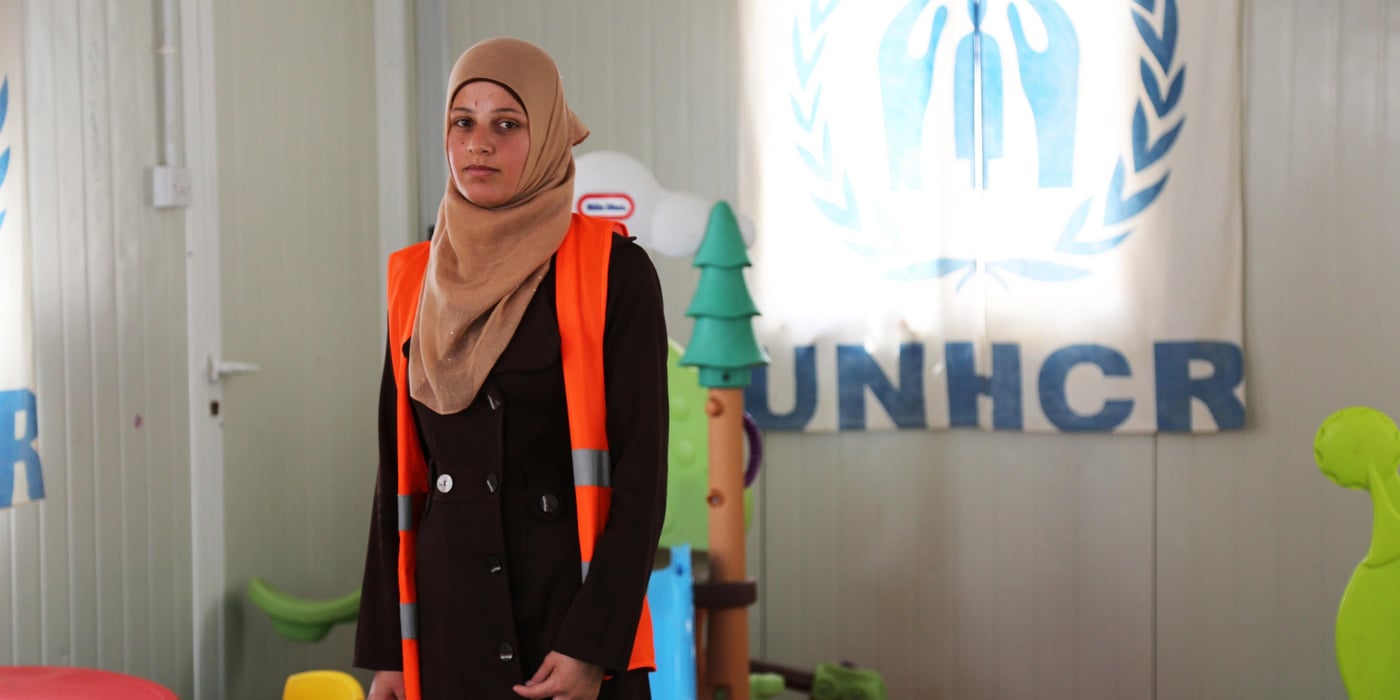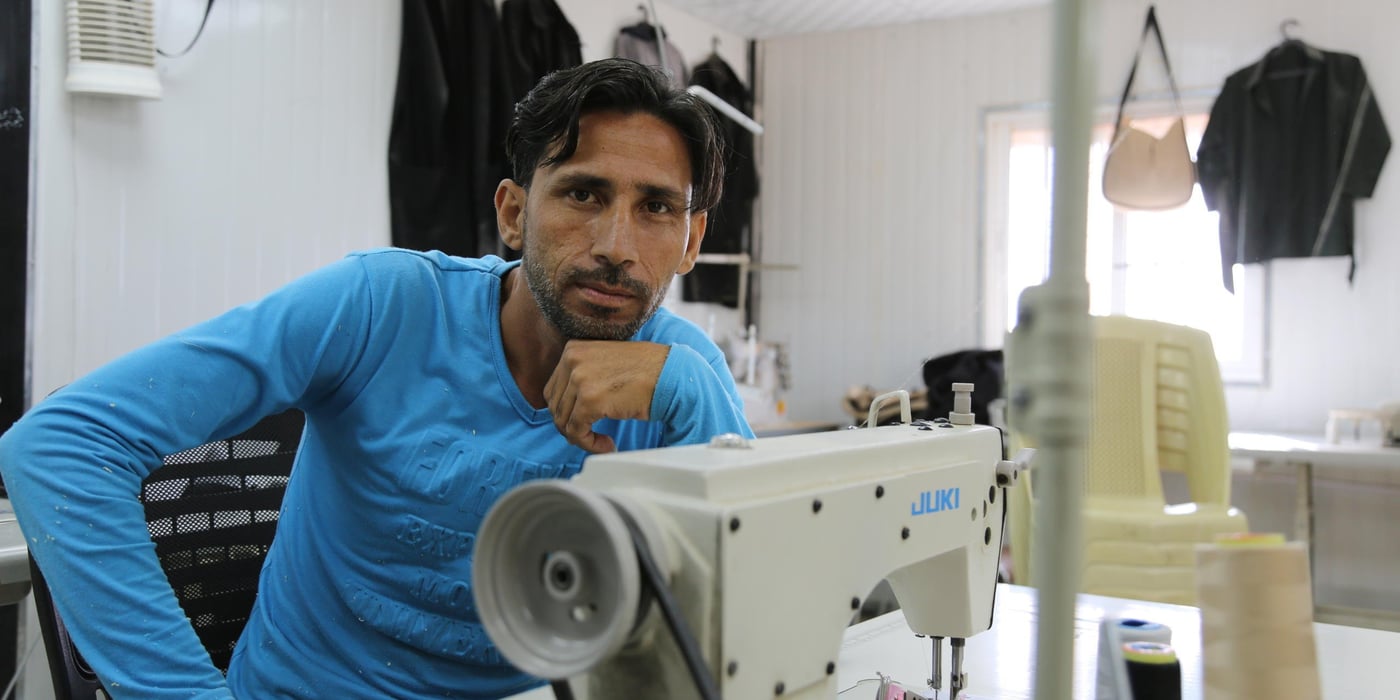
Over the last few years in Zaatari refugee camp in Jordan, women have been playing a huge role in the family economy and have been participating actively in the labour market.
Women as breadwinners
Some women are the sole breadwinners for their families because the men are not able to work, either because they are physically disabled or for psychological reasons. Women who are widowed, abandoned, or divorced also have no choice but to work and provide for their families. Although women’s participation in the labour market is not widely accepted within the community of Syrian refugees living in Zaatari refugee camp, some women still proudly do it, with no fear of cultural pressures or harassment, simply because they want a better life for their children.
In 2013, the Norwegian Refugee Council (NRC) started implementing programmes in the camp with the support of Syrian workers, with funding from the United Nations High Commissioner for Refugees (UNHCR). Doing so provides assistance through not only economic stimulation and opportunity, but also helps affected individuals (men and women) to give back to their community. One of the strongest advantages of harnessing the potential of Syrians through work in the camp is that it enables people to determine their own priorities. In 2017 alone, NRC has supported almost 500 unskilled and semi-skilled labourers in Zaatari.
“I have to work”
Eman is a 28-year-old woman from Rural Damascus. She lives in Zaatari camp with her husband and three children. Eman has a two-year-old son, six-year-old daughter, and an 11-year-old son.
Eman enrolled in the Norwegian Refugee Council’s (NRC) youth project, funded by UNICEF and the Norwegian Ministry of Foreign Affairs, in district 10. She took part in the tailoring, life skills, and project management courses. These courses helped her get her new volunteering job. She now works in the day care in the NRC-managed reception area. Her job consists of comforting children who arrive in the reception area, playing with them and creating fun activities for them to entertain and educate them.
“My husband does not work because he is still emotionally disturbed by the war. In the beginning, he did not like the concept of me working in the camp, but I have to work. We don’t have any other choice,” says Eman.
A model for young mothers
Eman signed a six-month contract in her current volunteering job. She worked in a day care centre in Syria and she is well-equipped with skills that suit her role. Eman is a great model for young working mothers surviving conflict.
Zuhour, a 49-year-old woman from Damascus, has been living in Zaatari refugee camp for four years now. Zuhour lives in the camp with her 14-year-old son, her 12-year-old daughter, and her other married daughter. Zuhour has been working with NRC for 18 days. During these 18 days, Zuhour was able to enrol her son back in school, buy diapers for her daughter and buy fresh vegetables on a daily basis, and pay her debts to her neighbour whom she usually borrows money from.
“Working is not a taboo”
“I work because I’m not used to asking people for money. I believe that working is not a taboo. Even If my husband was alive and able to provide I would still consider working,” says Zuhour.
Zuhour worked as a cleaner in the NRC distribution site. “Working as a cleaning lady suits me very well because I can’t work under direct exposure to sunlight. I was injured in Syria and I have some stitches in my head,” explains Zuhour.
Supporting Syrian refugees through work is an effective way of providing direct assistance to refugees, empowering individuals, stimulating the camp economy, and helps provide economically vulnerable groups with means to sustain themselves. These programmes help prevent accumulation of debt that can frequently result from the short-term economic pressures caused by conflict or disaster.




